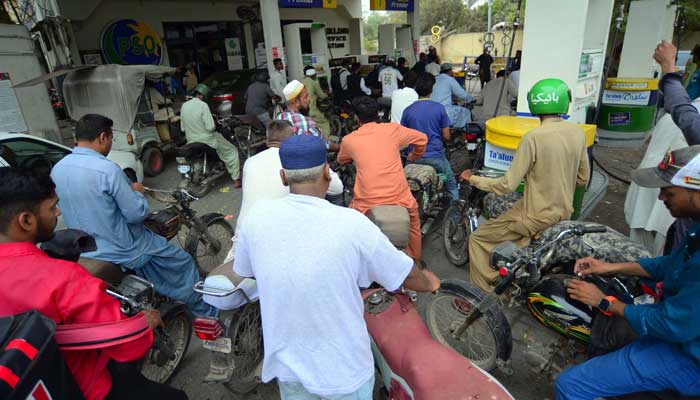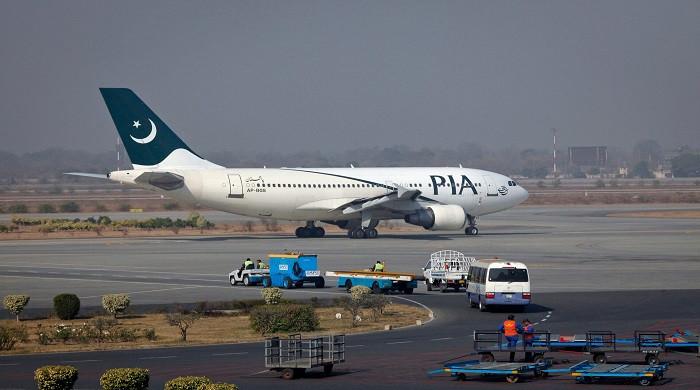Petrol price increased by Rs1.35 per litre for next fortnight
Price of high-speed diesel increased from Rs251.29 to Rs255.14 per litre from November 1
October 31, 2024

- High-speed diesel price increased by Rs3.85 per litre.
- Kerosene, LDO reduced by Rs1.48, Rs2.61, respectively.
- HSD considered inflationary as it is used in heavy goods.
ISLAMABAD: Against the market expectations, the federal government has increased the price of petrol by Rs1.35 per litre for the next fortnight, ending on November 15.
The new fuel prices came into effect from November 1 (Friday).
According to a notification issued by the Finance Division, the new price of petrol will be Rs248.38 per litre, up from Rs247.03.
“The Oil [and] Gas Regulatory Authority (OGRA) has worked out the consumer prices of petroleum products, based on the price variation in the international market,” read a statement released by the Finance Division late Thursday.
Similarly, the price of high-speed diesel (HSD) was increased from Rs251.29 to Rs255.14 per litre — an increase of Rs3.85 per litre.
Meanwhile, prices of other petroleum products have been reduced.
The new price of kerosene oil will be Rs161.54, down by Rs1.48 from Rs163.02 per litre.
Likewise, the price of light-diesel oil has been reduced by Rs2.61 from Rs150.12 to Rs147.51 per litre.
| Products | Existing price | New price | Increase/Decrease |
| Petrol | 247.03 | 248.38 | +1.35 |
| High-Speed Diesel | 251.29 | 255.14 | +3.85 |
| Kerosene | 163.02 | 161.54 | -1.48 |
| Light Diesel Oil | 150.12 | 147.51 | -2.61 |
Petrol is mainly used in private transportation, small vehicles, rickshaws, and two-wheelers. Higher fuel prices significantly impact the budgets of the members of the middle and lower-middle classes, who primarily consume petrol for commuting. On the other hand, a significant portion of the transport sector relies on high-speed diesel.
Its price is considered inflationary since it is predominantly used in heavy goods transport vehicles, trucks, buses, trains, and agricultural machinery such as tractors, tube wells, and threshers.
The consumption of high-speed diesel particularly contributes to the increased prices of vegetables and other food items.











